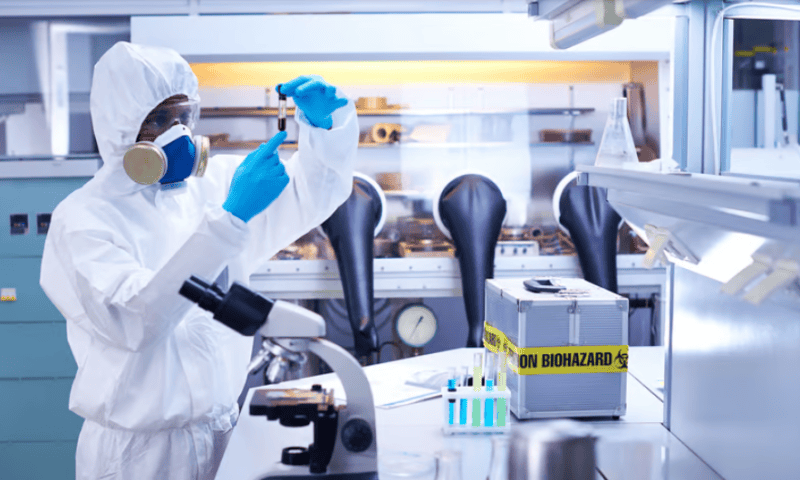With COVID-19 still spreading and mpox emerging as a public health emergency of international concern, the National Institutes of Health (NIH) is upping preparations for future pandemics.
The Research and Development of Vaccines and Monoclonal Antibodies for Pandemic Preparedness network (ReVAMPP) will research pathogens that currently lack effective treatments and vaccines, with the NIH’s National Institute of Allergy and Infectious Diseases (NIAID) committing up to $100 million per year to the effort so long as funds are available, the agency announced Sept. 13.
“In the wake of the COVID-19 pandemic and ongoing outbreaks of emerging infectious diseases, the need for robust pandemic preparedness is evident,” NIAID Director Jeanne M. Marrazzo, M.D., said in the release. “The ReVAMPP network will enable researchers to fill key knowledge gaps and identify strategies to develop safe and effective medical countermeasures for targeted virus families before the need becomes critical.”
The U.S. has long faced criticism over its pandemic preparedness, both before, during and after COVID-19’s first appearance and spread.
ReVAMPP will focus on virus families with known troublemakers, the NIH said, including the families that include dengue and yellow fever, measles, polio and chikungunya. The agency says that focusing on representative pathogens known to cause human disease will enable knowledge to be built that can be transferred to related pathogens.
Developing new antibodies and vaccines for these diseases, the agency said in the release, will allow the global health community to respond quickly if a new pandemic threat spawns.
Recipients of the funding include the Albert Einstein College of Medicine, the Research Triangle Institute in North Carolina, the Vanderbilt University Medical Center and Washington University in St. Louis, among others.
Albert Einstein’s project is called Prepositioning Optimized Strategies for Vaccines and Immunotherapeutics against Diverse Emerging Infectious Threats (PROVIDENT), and the college will receive $70 million over five years from NIAID, according to a Sept. 13 release.
HDT Bio, a biotech focused on RNA vaccines, announced Sept. 17 that it will be joining Albert Einstein’s project, netting $2 million per year to create “road maps” for new RNA-based vaccines of potential pandemic pathogens.
“It is currently unknown if the state-of-the-art approaches used to design vaccine antigens for traditional vaccine technologies can simply be co-opted for use in RNA vaccine technologies,” Jesse Erasmus, Ph.D., director of virology at HDT Bio, said in the company’s release. “HDT Bio will address this unknown while generating prototype vaccine candidates for 8 different viruses across 3 virus families of pandemic potential, collaborating with other member institutions of PROVIDENT.”
HDT Bio is headquartered in Seattle and has numerous vaccines for viral diseases in its pipeline, including for COVID-19, Crimean–Congo hemorrhagic fever and Nipah virus.
The Research Triangle Institute will serve the ReVAMPP network as a centralized Coordination and Data Sharing Center, the NIH said in its release.

